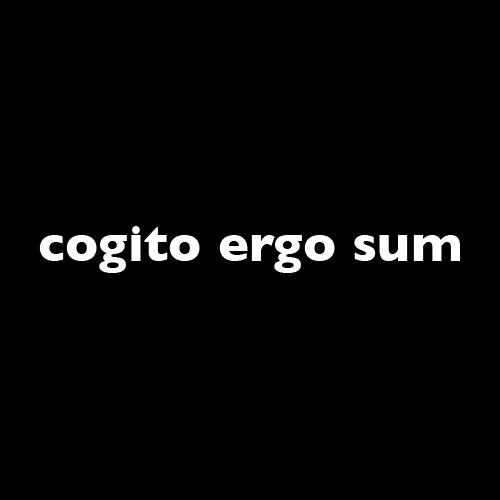
I think, therefore I am (stated by Descartes as the first principle in resolving universal doubt).

A knowledge community, international conference, scholarly journal, and book series.



René Descartes: Rene Descartes, French mathematician, scientist, and philosopher who has been called the man of modern philosophy.


Compound Forms: Inglés: Español: I think, therefore I am expr expression: Prepositional phrase, adverbial phrase, or other phrase or expression–for example, “behind the times,” “on your own.”

Cogito, ergo sum is a Latin philosophical proposition by René Descartes usually translated into English as “I think, therefore I am”.The phrase originally appeared in French as je pense, donc je suis in his Discourse on the Method, so as to reach a wider audience than Latin would have allowed.
Apr 18, 2018 · This page was last edited on 18 April 2018, at 05:50. Text is available under the Creative Commons Attribution-ShareAlike License; additional terms may apply.By using this site, you agree to the Terms of Use and Privacy Policy.
Mar 06, 2013 · Alejandro Chafuen Contributor. I cover think tanks, scholars, and champions of innovation. full bio → Opinions expressed by Forbes …

René Descartes (1596–1650) is widely regarded as the man of modern philosophy. His noteworthy contributions extend to mathematics and physics.
Wait a minute, Where’s the quote!? It’s there, trust me! “I am, I exist,” is used here by Descartes to express the same thing. Meditation II is often called the cogitio for the reason that the words “I think, therefore I am,” can readily be …

Cogito, ergo sum: Cogito, ergo sum, (Latin: “I think, therefore I am) dictum coined by the French philosopher René Descartes in his Discourse on Method (1637) as a first step in demonstrating the attainability of certain knowledge.